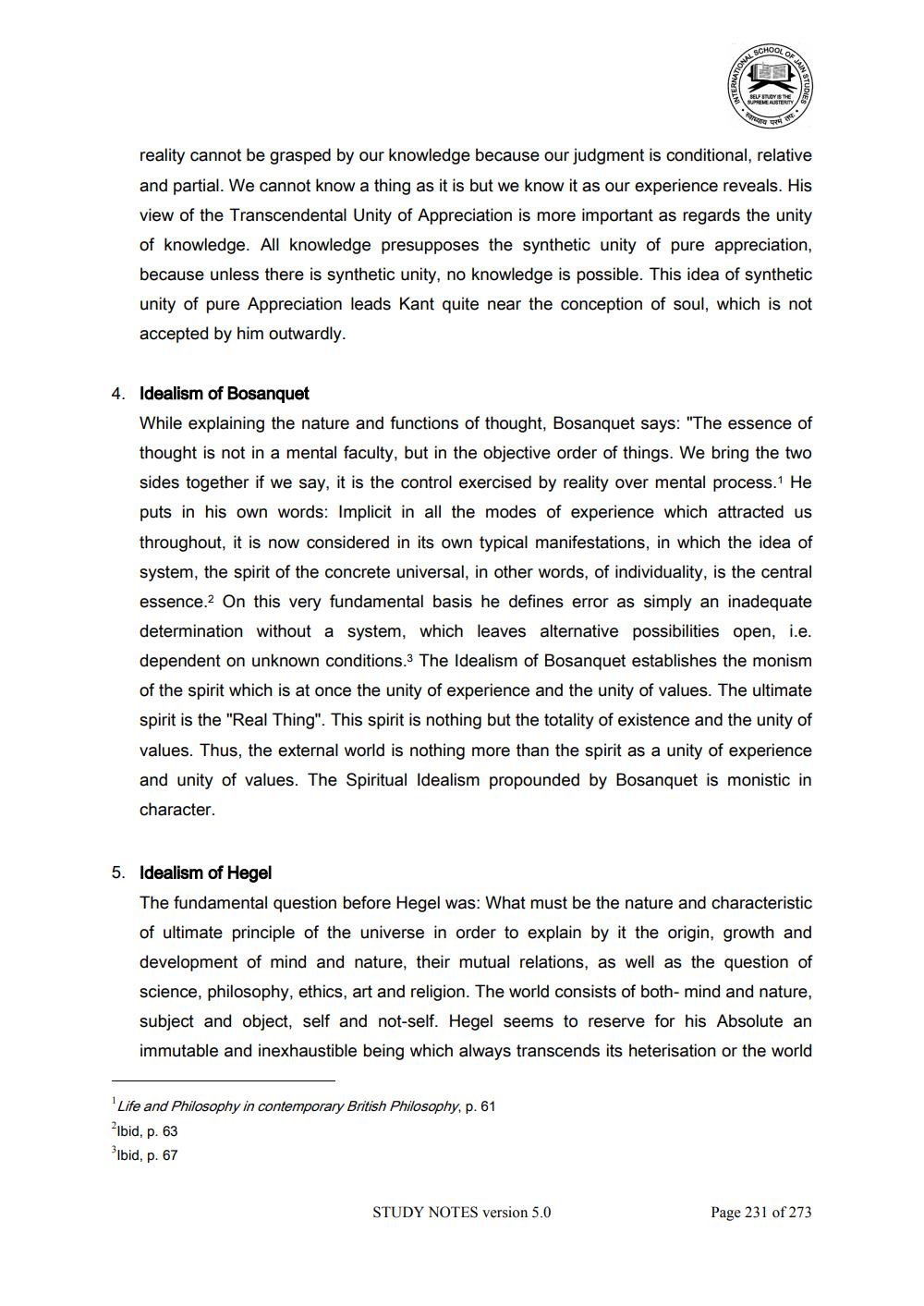________________
SCHOOL
1Life and Philosophy in contemporary British Philosophy, p. 61
2Ibid, p. 63 3Ibid, p. 67
OF
SELF STUDY IS THE
SUPREME AUSTERITY
स्वाध्याय
परमे
STUDY NOTES version 5.0
reality cannot be grasped by our knowledge because our judgment is conditional, relative and partial. We cannot know a thing as it is but we know it as our experience reveals. His view of the Transcendental Unity of Appreciation is more important as regards the unity of knowledge. All knowledge presupposes the synthetic unity of pure appreciation, because unless there is synthetic unity, no knowledge is possible. This idea of synthetic unity of pure Appreciation leads Kant quite near the conception of soul, which is not accepted by him outwardly.
तप
4. Idealism of Bosanquet
While explaining the nature and functions of thought, Bosanquet says: "The essence of thought is not in a mental faculty, but in the objective order of things. We bring the two sides together if we say, it is the control exercised by reality over mental process.1 He puts in his own words: Implicit in all the modes of experience which attracted us throughout, it is now considered in its own typical manifestations, in which the idea of system, the spirit of the concrete universal, in other words, of individuality, is the central essence. On this very fundamental basis he defines error as simply an inadequate determination without a system, which leaves alternative possibilities open, i.e. dependent on unknown conditions.3 The Idealism of Bosanquet establishes the monism of the spirit which is at once the unity of experience and the unity of values. The ultimate spirit is the "Real Thing". This spirit is nothing but the totality of existence and the unity of values. Thus, the external world is nothing more than the spirit as a unity of experience and unity of values. The Spiritual Idealism propounded by Bosanquet is monistic in character.
5. Idealism of Hegel
The fundamental question before Hegel was: What must be the nature and characteristic of ultimate principle of the universe in order to explain by it the origin, growth and development of mind and nature, their mutual relations, as well as the question of science, philosophy, ethics, art and religion. The world consists of both- mind and nature, subject and object, self and not-self. Hegel seems to reserve for his Absolute an immutable and inexhaustible being which always transcends its heterisation or the world
Page 231 of 273




